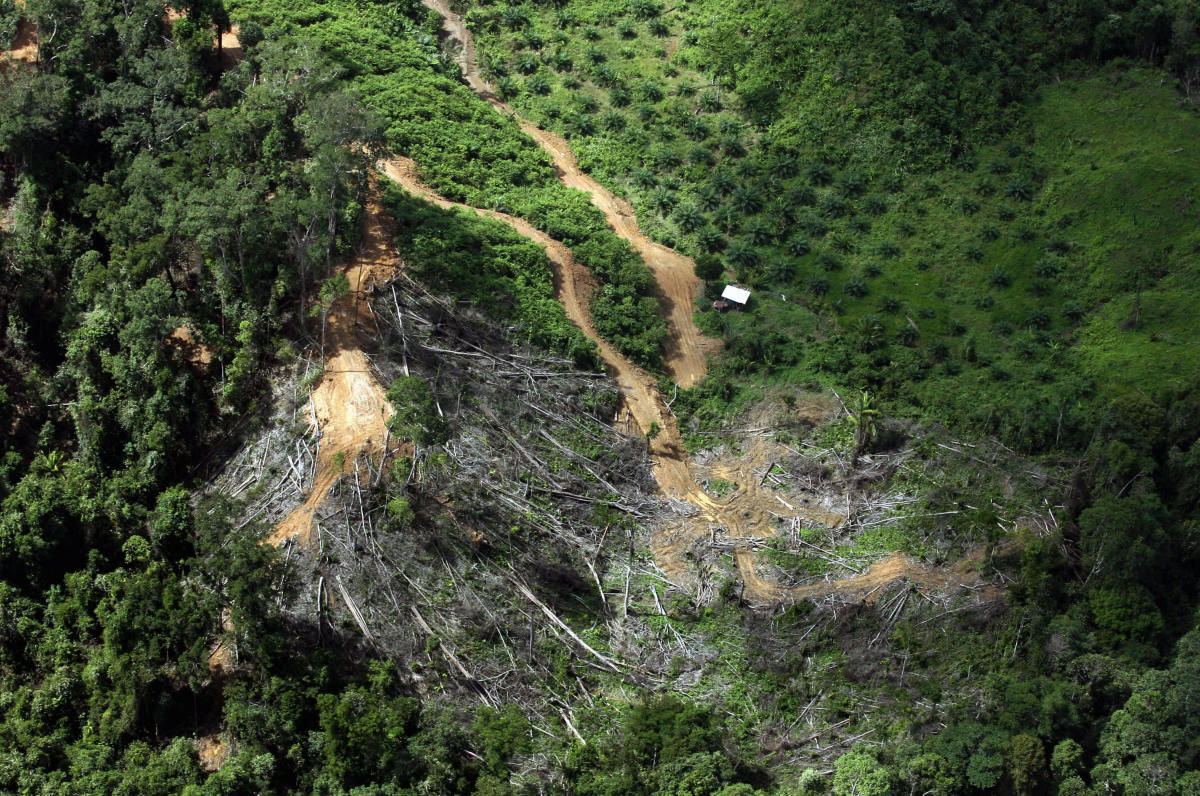Urban areas face increasing problems with stormwater management. Impervious surfaces on roads and buildings cause flooding, which impacts the water quality of streams, rivers and lakes. Green infrastructure, including features such as rain barrels, green roofs, rain gardens, and on-site water treatment, can provide affordable and environmentally sound ways to manage precipitation. However, green infrastructure...
environment
Room for Complexity? the Many Players in the Coffee Agroecosystem
The BioScience Talks podcast features discussions of topical issues related to the biological sciences. Agricultural areas are often considered distinct from local ecosystems, and in many cases, such an assessment rings true. Single-crop farmlands, reliant on the liberal use of pest- and herbicides, often limit local biodiversity and species interactions. However, in other agricultural settings, robust ecosystems...
Transformational Innovation Needed to Reach Global Forest Restoration Goals
The U.N. and other international organizations agree that forest restoration is a critical part of the collective global effort to combat climate change, reduce extinctions, and improve the lives of people in rural communities. Dozens of nations have pledged to restore 230 million hectares of forest so far as part of projects such as the...
Tipping Mechanisms Could Spark Societal Change Towards Climate Stabilization
Limiting global warming to well below 2°C requires a decarbonized world by 2050 at the latest and a corresponding global transformation of the energy and land use systems of societies across the world. To achieve this goal of net-zero carbon by 2050 emissions need to be cut by half every decade from now on. An...
Research Shows Potential for Zero-Deforestation Pledges to Protect Wildlife in Oil Palm
New research has found that environmental efforts aimed at eliminating deforestation from oil palm production have the potential to benefit vulnerable tropical mammals. These findings, published by Conservation Letters, were drawn from an international collaboration led by Dr. Nicolas Deere from the University of Kent’s Durrell Institute of Conservation and Ecology (DICE), and including the University...
Sea Level Rise Could Reshape the United States, Trigger Migration Inland
When Hurricane Harvey slammed into the Texas coast in 2017, displaced residents flocked inland, trying to rebuild their lives in the disaster’s aftermath. Within decades, the same thing could happen at a much larger scale due to rising sea levels, says a new study led by USC Computer Science Assistant Professor Bistra Dilkina. The study,...
Caterpillar Loss in Tropical Forest Linked to Extreme Rain, Temperature Events
Using a 22-year dataset of plant-caterpillar-parasitoid interactions collected within a patch of protected Costa Rican lowland Caribbean forest, scientists report declines in caterpillar and parasitoid diversity and density that are paralleled by losses in an important ecosystem service: biocontrol of herbivores by parasitoids. The study by University of Nevada, Reno researchers, published in Scientific Reports this week,...
New Study Estimates the Global Extent of River Ice Loss as Earth Warms
More than half of Earth’s rivers freeze over every year. These frozen rivers support important transportation networks for communities and industries located at high latitudes. Ice cover also regulates the amount of greenhouse gasses released from rivers into Earth’s atmosphere. A new study from researchers in the University of North Carolina at Chapel Hill Department...
Illegal Hunting and Bushmeat Trade Threatens Biodiversity and Wildlife of Angola
Hunting wild animals has been practised by humans for millions of years; however, the extraction of wildlife for subsistence and commercialisation has become a major biodiversity threat in recent decades. Meanwhile, over-exploitation is reported to be the second most important driver of change and biodiversity loss globally. To assess the state of affairs, an international group of...
In Global South, Urban Sanitation Crisis Harms Health, Economy
Cities in the “global south” – densely populated urban areas that are part of low-income countries in Asia, Africa and Latin America – should phase out pit latrines, septic tanks and other on-site methods of human waste management. Instead, cities should invest in sewage systems, according to a report from the World Resources Institute/Ross Center...










